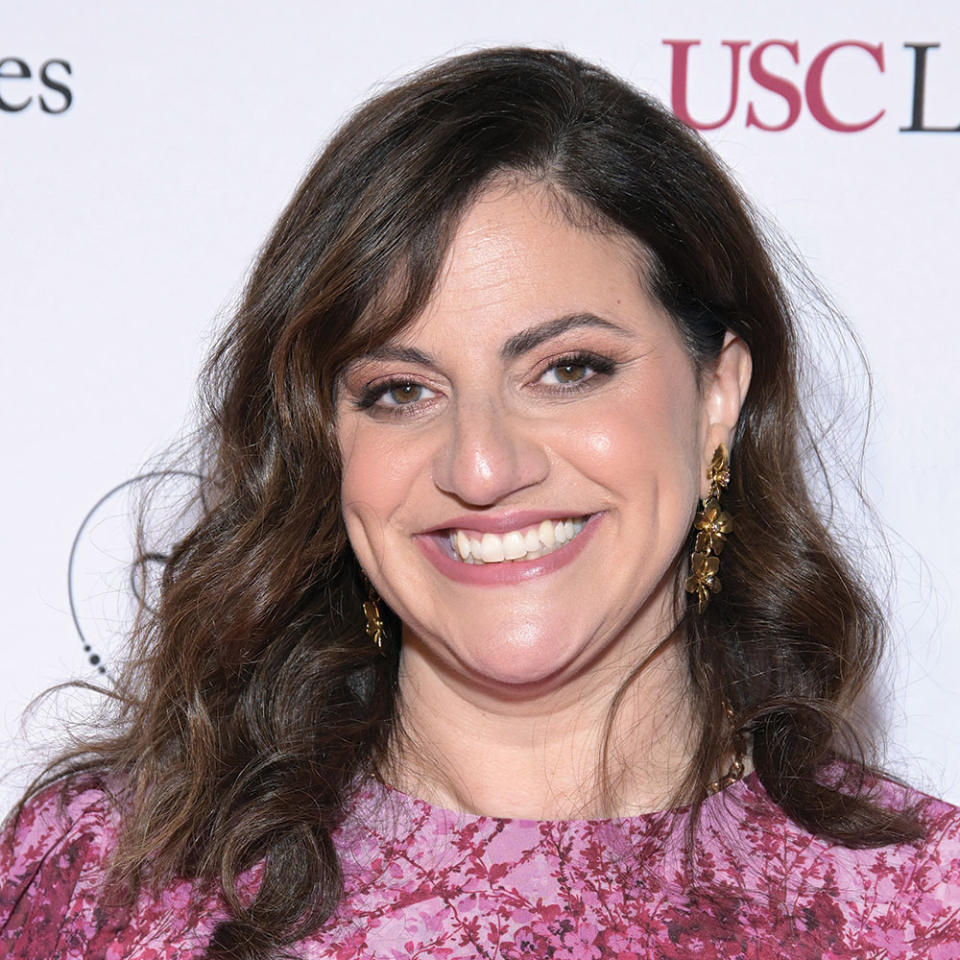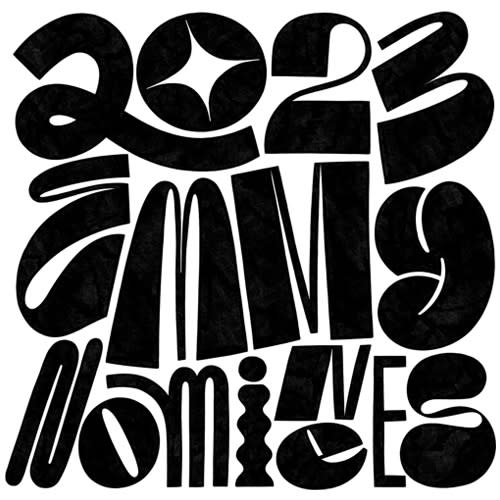‘Fleishman Is in Trouble’ Creator Taffy Brodesser-Akner on Getting Support to Adapt Her Novel for TV: “People Took Such a Chance on My Weird Book and Me”

Taffy Brodesser-Akner is not going to pretend she wasn’t awake for the Emmy nomination announcement on July 12. “I was sitting there and watching it like a stock ticker,” she says. Brodesser-Akner was rewarded for her attention: The novelist and journalist’s first foray into television, FX/Hulu’s adaptation of her book Fleishman Is in Trouble, is nominated for seven awards, including outstanding limited or anthology series, lead actress for Lizzy Caplan and supporting actress for Claire Danes. Fleishman begins by following the newly single life of Upper East Side hepatologist Toby Fleishman (Jesse Eisenberg) after he and his wife, Rachel (Danes), split up. Over the course of the eight episodes — narrated by Toby’s friend Libby (Caplan) — the audience starts to understand the deep wounds of this relationship and the malaise of early middle age. Brodesser-Akner, having also earned an individual Emmy nominee for writing, spoke to THR about tackling her own work for the screen.

Can you tell me a little bit about how you came to, “OK, this novel can become a limited series,” and when that started for you?
More from The Hollywood Reporter
Guest Essay: How 'George & Tammy' Captured My Parents as Human Beings First, Musical Icons Second
'Hocus Pocus 2' Delivered "Cosmic Costume Design" With Magical Flourishes
'Fire Island' Director Says Film Shoot "Was Like Gay Summer Camp"
It was like everything in my insecure writer’s life: Someone else had to tell me. I thought it was too internal for an adaptation. I thought it was just too flashback-y —all the things that people tell you. Before it came out, there were just a couple of people interested in it. I remember saying to my agent, “I’m so sorry that I didn’t write something that would get more attention.”
And then, suddenly, there were a million people interested in it. If I could game why, I can’t. [My agents] put me on the phone one day with [executive producers] Sarah Timberman [producer of FX’s Justified, Netflix’s Unbelievable] and Susannah Grant [writer of Erin Brockovich and Unbelievable], whom I knew to be absolute legends. Of course, I wanted to speak to them. I said, “Would Susannah write it?” Because, of course, Susannah Grant is Susannah Grant. They said, “No. You would have to write it.” I’m embarrassed to tell you how quickly I agreed with them. I really wasn’t going to do it, and then suddenly, it was like, “Of course, I should write it.” I went back to my agents and I said, “I think I should write it,” and, luckily, they were very, very supportive of that.
How did your opinion of the material, which came from you, start to change once you started looking at it from the perspective of putting it in a different medium?
I have no arrogance about the writing process, except for the fact that the book was already written. I remember what Susannah Grant said in our first meeting, I said, “Wow. Maybe with a TV show it could go in all these different directions.” She said, “It doesn’t need to.” I had never heard the confidence in someone’s voice that something was how it should be. I took that and I ran with it. And it worked out.
As you mentioned, the book is very internal. Did you reconsider Libby’s place in the narrative as you started writing the show?
I guess I have so much vanity about that character. When I was writing this novel, the one thing I knew that I loved about this book was that in the end, it was written by a character in the book. Then also, by the time I was writing, I had this relationship with all these actors. We had this secret weapon. We had Lizzy Caplan. She was our plutonium.
[The show] was originally conceived to be nine episodes. It’s eight episodes. We always knew that in episode seven, Claire would have this big thing. Then we had eight and nine to get through. We had Zoom table reads [during production] because we were so afraid of COVID. We did this table read of [episode] seven. I remember Claire was in her dressing room, still in some outfit, she had her glasses on. Everyone had bad Wi-Fi that day. We were all mesmerized and in tears. We were shaken by episode seven. We realized that we could not do two episodes after that. If that’s what it looks like at a bad Wi-Fi Zoom table read where she’s reading the script for the first time, we just knew.
How did you start the casting process?
My absolute favorite directors in the world [are] Jonathan Dayton and Valerie Faris. Not just Little Miss Sunshine. Ruby Sparks is a movie that I watch maybe twice a year. We asked them, “What do you think about casting?” They were the first people to say Jesse Eisenberg. The minute they said it, we were like, “Of course.” Jesse is perfect. Jesse, who is nothing like you see onscreen, also has no vanity.
The only other people that I thought of were Claire Danes, Lizzy Caplan, Adam Brody and Josh Radnor. The casting people, everyone said, “No, you have to come up with a list of five people.” I kept saying, “Maybe I’m just not good at casting because I can’t think of anybody else.” Claire Danes is someone who anyone my age is obsessed with. Maybe since My So-Called Life, I have not seen Claire Danes be the sort of stylish New Yorker that she is. I was a huge Homeland fan. I know what she could do, but I’ve always been curious as to what she would be like playing some realism, right?
Weirdly, her best friend gave her a copy of the book and she was reading it when the offer came in. I was so attached to Claire that by the time we got to episode seven, I wrote her into episode eight. She came to me when she read the script and she asked to speak to me alone and she said, “You don’t really want to [write me into episode eight].” I was like, “But … ” She’s like, “It’s just time to say goodbye.”
As a Jewish woman, I, in my mind’s eye, imagine that I am Lizzy Caplan. I imagine that I am prettier than I am and cooler than I am. And Lizzy, by the way, is the coolest. Like, the way we are so different is how cool she is. What I would say is that she is able to talk about this book and this character better than I can.
How does this moment feel with the Emmy nominations and the double strike happening at the same time?
I was shocked about the Emmys because I warned everyone this: that no matter how hard they work, I, personally, am awards poison. I have been sent a cosmic lesson to be someone who enjoys the work rather than the reward for the work because I’ve been so lucky to have a good audience. I’ve been so lucky to have demand for my work, and the one thing I have never had are awards.
I was so relieved for all these other people who took such a chance on me — first my weird book, but then on me, that they took this chance and said, “We know you’re doing this for the first time. We like it. We’re going to do it.” The first thing I thought was, “I’m so relieved that their choices are validated.” Then I thought, of course, as someone who considers herself awards poison, to be nominated during a strike when who knows if the Emmys will even happen, that makes sense to me.
Interview edited for length and clarity.
This interview was coordinated with Taffy Brodesser-Akner personally rather through FX/Hulu publicity in accordance with a WGA ruling after the writers strike that began May 2.
This story first appeared in an August stand-alone issue of The Hollywood Reporter magazine. To receive the magazine, click here to subscribe.
Best of The Hollywood Reporter

 Yahoo News
Yahoo News 

